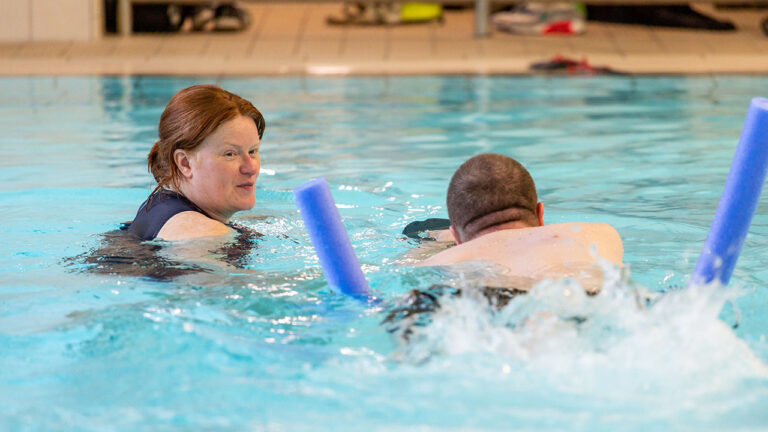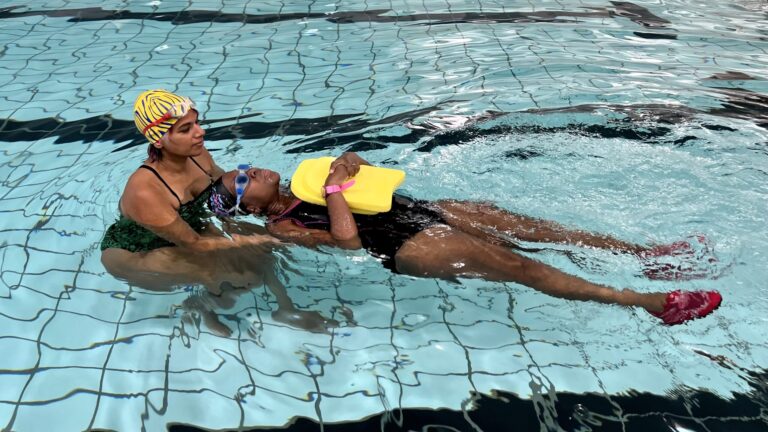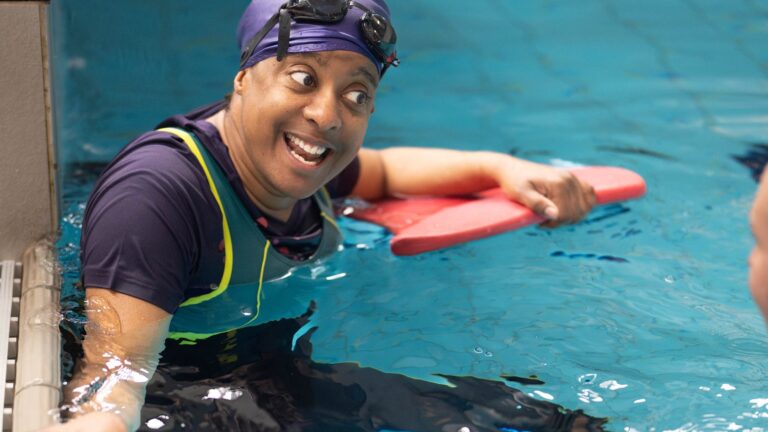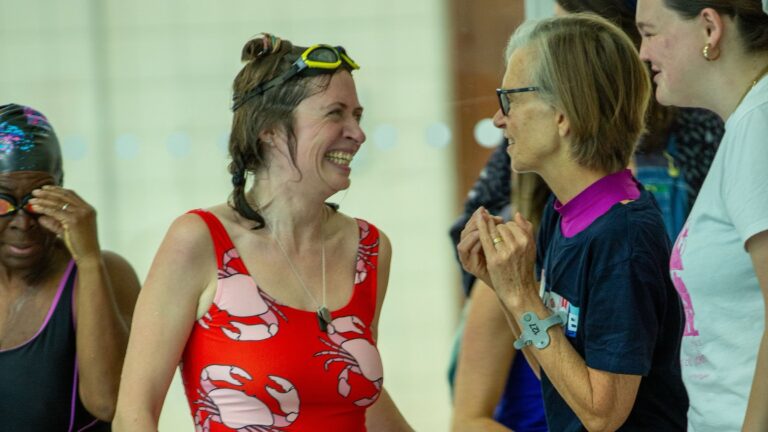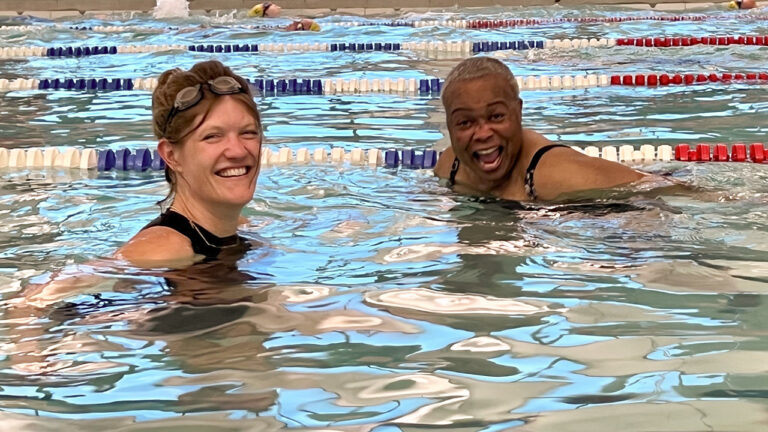Why We Float in Water
This short video explains the key concepts to help you understand buoyancy, in particular density and Archimedes’ principle.
Everyone floats in the water at their own natural level. Some factors can contribute to how high or low in the water you float, in particular:
- Our body type, in particular the muscle to fat ratio (as muscles are more dense than water and cause us to sink whilst fat helps us float) but also our bone density or the size of our lungs
- The density of the water we go into (sea water that contains salt makes us float better than fresh water due to its higher density)
What to Do If You Find It Difficult to Stay Afloat
No matter how low in the water you float, you can still learn to swim and practice a technique that works for you. Most people float naturally, but some individuals say they “sink”. In general, this is because when they lie on their back in a horizontal position in the water, they feel their legs “sink” towards the bottom of the pool. What we can see in the picture is that the body actually rotates until it reaches a vertical float position, where the centre of buoyancy (the centre of gravity of the displaced liquid, which in general is the geometrical centre of the displaced volume) is aligned vertically with the centre of gravity of the person.
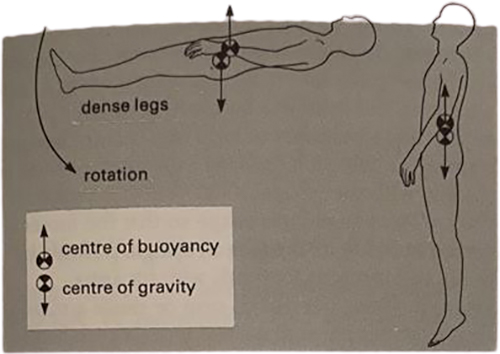
Let’s look at some exercises you can practice in a pool, with a buddy to help you, to prevent you from rotating from the horizontal position. In order to vertically align your centre of buoyancy with your centre of gravity, you can move the latter by straightening out the arms above the head or bending your knees like in the picture.
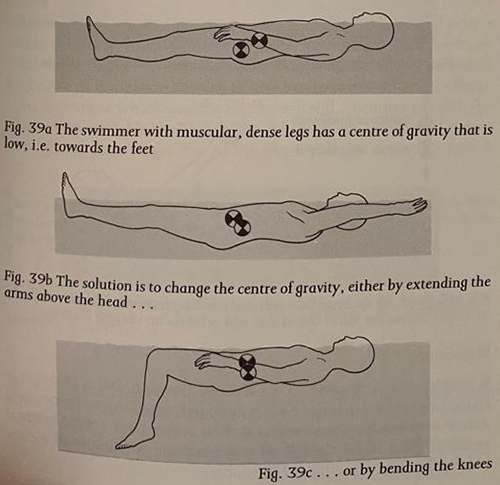
You could also try other types of float, for example in a star, pencil or mushroom positions, and even moving smoothly from one shape to another without going under water to practice your balance and control.
Here are some additional top tips for helping you to stay afloat:
- Gliding through the water and moving smoothly help you to remain at the surface
- Feeling how it’s like to submerge your body will make you realise that your body actually doesn’t sink like a stone. Try this while holding your breath.
- Relaxing and breathing facilitates the entry of air into your lungs and reduces the tension in your muscles
So next time you go to a pool, remember that you don’t actually sink and that you can practice your technique to get better at staying afloat! And if you are a volunteer, practice these exercises too, so you can then help our swimmers.

